Today’s article is a guest-blog from Derrick Blanton. Derrick has contributed a few exellent articles to my blog, and I really liked what he had to say here. I hope you do too!
For the Love of Training
By Derrick Blanton
Way back in prehistoric times, (well, 1978 anyway), the Blanton family went to see the new, soon to be blockbuster movie “Grease”.
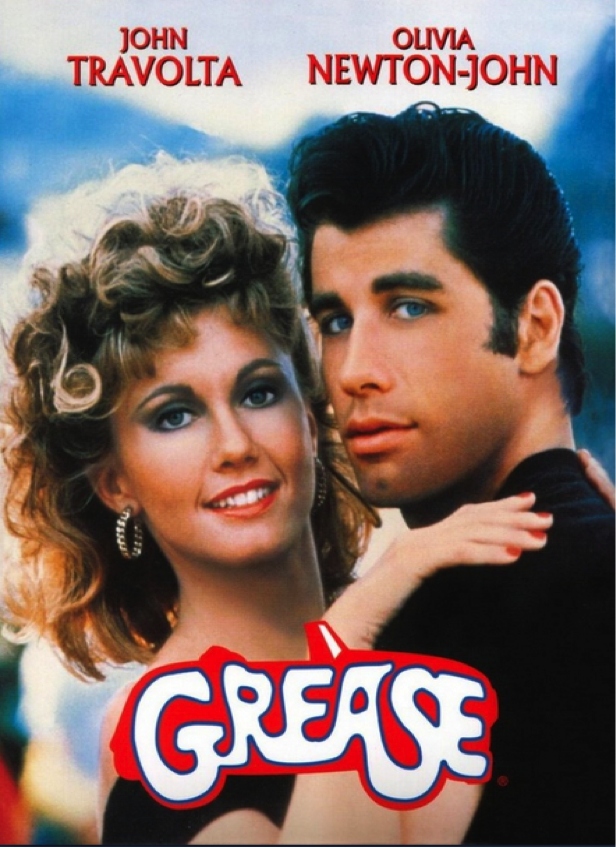
This was quite a treat for young Derrick! I vividly recall how impossibly beautiful Olivia Newton John was, how dreamlike the 50’s So-Cal high school world seemed, the comedy, the music.
I have one more very specific memory of that evening.
My legs were wrecked.
Earlier that day, I had designed and performed an utterly unrealistic exercise program, and as I sat in the movie theater enjoying the show, the DOMS was setting in with a malicious vengeance.
Did I mention that I was 11 at the time?
You may find it odd that an 11-year old kid would be writing and performing exercise protocols.
Is it odd that I was also scouring my mom’s women’s magazines for glute routines, and performing them. Yes, I was specifically training glutes as a little kid! (“Feel the burn!”)
That at the ripe old age of seven, I asked Santa Claus for a special Christmas present…a barbell set?
Santa hooked me up too! I got a 100-lb. barbell set with two adjustable dumbbells, and a brochure with Mr. Universe Bruce Randall curling the entire 100-lbs., which just seemed impossible to me.
(Later on in life, I would persuade a girlfriend to dig those very dumbbells plus thirty pounds of plates out of my parent’s attic, and fly them to me in New York for a visit. At the time, I was dead broke and needed a way to do shoulder raises, and hit my lateral delts. She arrived with a heavy suitcase, and an angry look on her face.)
“Does this article have a point?!”
Right! Sorry…
Hardwired to Train
People get into training for many different reasons, the psychology of which fascinates me. Motivation, whether internal or external, is a complex area of discussion. I very rarely see love of training, or the genetic component to this drive, considered.
In my case, an overriding love of training, of exercise, of activity, showed up very early in life. This has not diminished with time! In fact, as I move into my mid-40’s, this trait remains as dominant a driving force as ever. With age comes wisdom, and I have learned that I must control this drive as it will, absolutely, consistently, harm me if left to run wild.
Not everyone is wired this way.
Recently, while chatting up an old training partner who is trying to get back into shape, I came to the realization that he really didn’t enjoy training. This was surprising to me, because this guy did work in the gym back in the day.
He trained hard, he was good at it, and at one time he was as jacked as a Men’s Health cover model. But I began to realize that to him, this hard work was almost purely a means to an aesthetic end.
You often see this process play out with ex-athletes and actors; they let their bodies go to pot after their playing careers, or acting roles are over. Their rigorous training was designed to prepare themselves for the demands of their sport. A means to an end. When the end is achieved, evaporates, or diminishes, the means follows suit.
But what if the means are the end?
What if you love to train, just because you simply love to train?
Some good things are going to happen, and they will happen as a byproduct. While you are painting the barn, the crops will start growing!
Say what you will about Crossfit, and I’m personally not a proponent, but these folks get seriously INTO their training. Their drive to train is huge! The motivational setup is powerful, and working brilliantly. (Until the injuries start to pile up.)
When someone comes to me with the goal of losing body fat, I tell them, “Fall in love with gasping. Learn to enjoy oxygen debt. This will seem exceedingly unpleasant at first. But you will learn to enjoy it, to master it.”
You could achieve this “gasping” goal with any number of activities. Can you learn to love just one?
If they can learn to love it, and not get injured in the process, they will form a new habit, perhaps for life. Over time, this new habit will provoke tremendous adaptation.
In fitness, as in life, habits provoke adaptation. If you don’t believe it, then stop brushing your teeth. Start smoking. Start running. Start using a tanning bed. Start eating ten bags of chips every day. Start burying your face in your smartphone when a friend is trying to talk with you, or while driving your vehicle. (Please don’t do that last one. I’m just making a point here, people.)
Start DL’ing. Start doing high rep kettlebell swings, or pushing a sled. See how this works?
Adaptation happens. Whatever you do, or don’t do, your body will adapt. Adaptation is a mandatory law of nature. Thus, if you have a goal in mind, what behavioral change do you need to fall in love with?
And what if you happen to love the behavior without the specific goal attached? (Hint: Adaptation is still going to happen.)
The “Training Gene”
David Epstein is a Sports Illustrated writer who also wrote the book, “The Sports Gene: Inside the Science of Extraordinary Athletic Performance”.
The book explores genetics and sports, an absolutely fascinating topic. Here’s a quote from a press tour interview:
Was there any particular connection between athleticism and genetics that surprised you?
I knew full well that physical activity could impact our dopamine system, which is involved in pleasure and reward in the brain. I did not know that the reverse is true, that innate differences in our dopamine genes can influence the drive to be physically active. I guess intuitively that makes some sense, but I didn’t realize there was so much work done in the area of biological predisposition to physical activity. I write about that in chapter 14, where a scientists who studies it raises questions about how ADHD drugs might affect children who have a high drive to be physically active. Perhaps an important issue for future doctors to investigate!
This is brilliant!
According to Mr. Epstein, “not only does our biology respond to physical activity, but our physical activity responds to our biology…”, and this relates to our dopamine system in the brain.
Cause meet effect meet cause! And I suspect that this relationship is as genetic as limb length, and muscle fiber makeup.
(I’ll put a link below of an extended discussion with Mr. Epstein)
Can you learn to love training? I think you can. But some will love it, nay, some will need it right out of the gate. I’m guessing that more than a few are reading this right now!
I am a lifetime all natural trainer with resoundingly mediocre genetics in all athletic endeavors. My lone, possible genetic “gift” is that of gluteal muscular endurance. (Note: There are no public contests with cheering spectators for gluteal muscular endurance. Dammit!)
However, I have been blessed with this powerful drive to train. It has seemingly pursued me more than I have pursued it!
In the last year I gained about 12-15 lbs. of new muscle, which is a bit odd at my age. Perhaps more strange is that this new growth was not spurred by any particular design on my part.
No fancy new protocol to go with a fancy new supplement. No vitamin S. No concentrated effort to get in more protein. No solemn New Year’s Day resolution to attack my goals with a vengeance.

In fact, I don’t even have any specific training goals.
I know this is crazy and counterintuitive, blasphemous in today’s goal-oriented, joy-sapping world.
Here come the pitchforks, but I really don’t!
Push me off a cliff, and I’ll say that my primary goal is to train hard, and stay healthy. Weak sauce, huh?
I’ll go on a conditioning kick, then a strength kick, then a body weight kick. Usually mixing up all styles per week, but never in a timed Crossfit type fashion, which for me, is injury waiting to happen. (Not a fan of density training for this very reason. No offense to Mr Staley, I know it works well for many.)
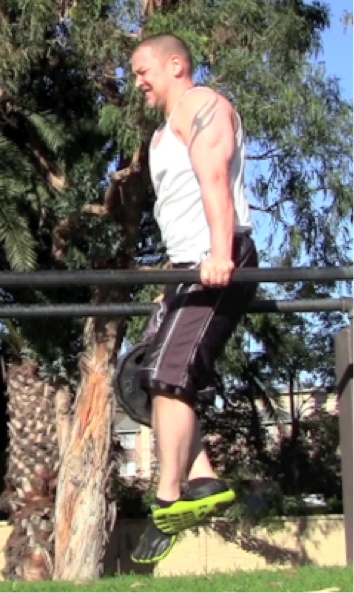
My only real objective is to move my muscles against load. Because, damn it, it feels good!
Reps, load, exercise selection? Yeah, I pretty much make it up on the fly. Haphazard. Instinctive. My training log is different every week.
Now in fairness, I’ve been doing this a while, and I do know how to “overlap”.
“Sure, it’s bench day. But it’s so beautiful outside!!”
I get bored easily, I’m uber-undisciplined, and I willfully refuse to adhere to any set routine, even when I design it myself, ha ha! It’s a disorganized mess, but that one trait keeps coming back: I love to train!
I just let each day go where it needs to go, and it usually ends up going further than expected.
Strangely, with this randomized and unfocused style of training, I’m making more progress than ever. Probably because it is fun! When something is fun, you tend to do it more often, yes?
Am I going to get barbecued for saying that training should be fun?
Now this style likely only works if your goals are general, and you got the love of training. Love the process. If you are passive-aggressively grinding out a session day after day to sort out various psychological needs, then yes, you probably need specific parameters.

This is the “slaying personal demons” approach, and yes it will provide for adaptation towards your goal.
You will also, at some point, almost certainly lose interest. And get fat. (See ex-athlete example.)
This love of training gene? It got passed down to my son, Kyle.
Kyle goes hard. In fact, if there is any kind of conditioning component to the session, he destroys the old man in the gym now. (Which is so not cool, son. So not cool. 🙂
Well I will wind up this discussion by returning to Epstein. Here is a link to a podcast discussion on sport genetics that I find personally illuminating. For the sake of this discussion, cue to the section at 13:48 concerning Iditarod sled dogs, (although the whole discussion is fascinating):
http://www.voicebase.com/autonotes/public_detail/318030
I’ll paraphrase Epstein’s account:
Iditarod dog trainers have moved to breeding dogs for love of running, rather than for speed. This, because these dogs, though slower, will strain to run so hard, and so often, that they will make up the lost ground, and surpass the faster dogs. They will run longer, with less rest. These dogs have a powerful need to run, and will “bore a hole in the Earth”.
These particular dogs don’t need external “goals” for motivation. The activity is the reward. Don’t try to drive these dogs faster, or longer. Just…let them run.
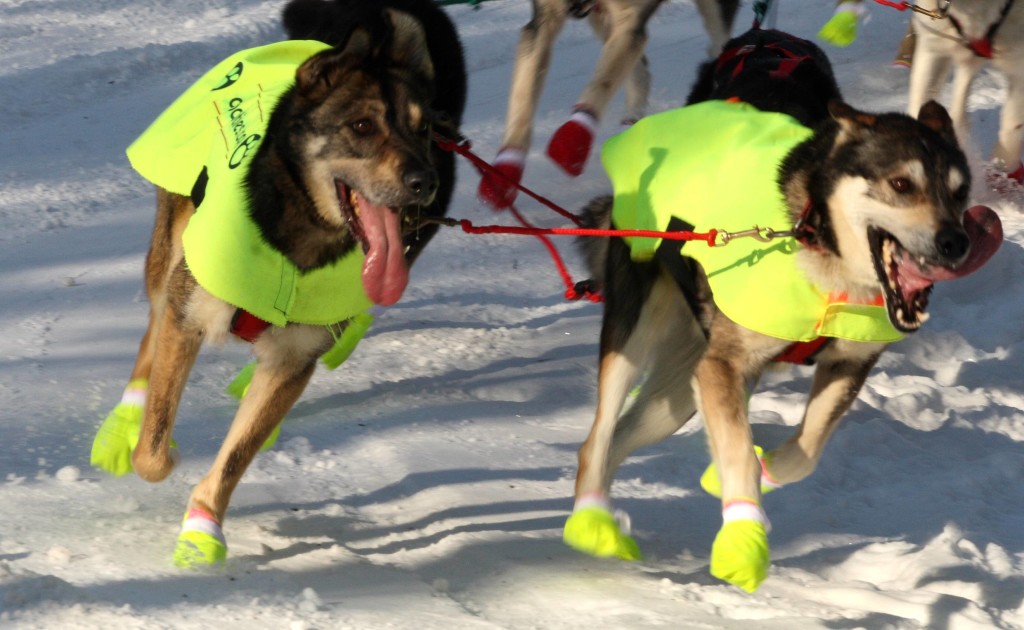

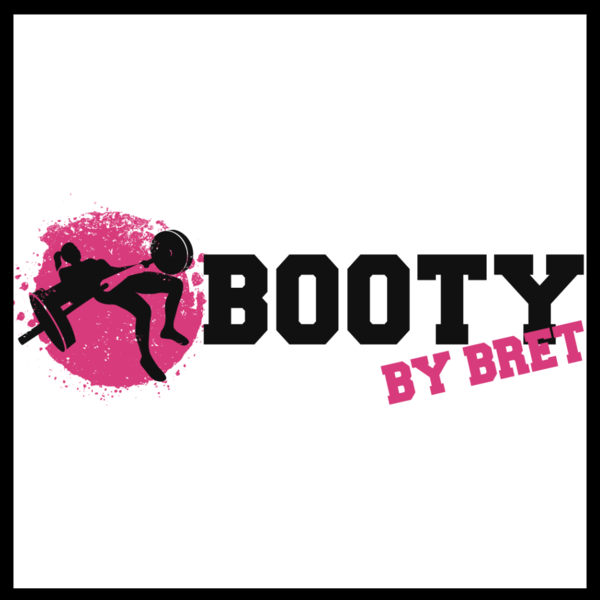

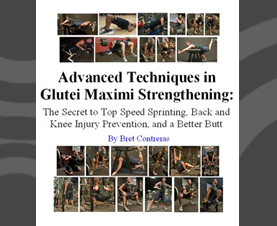
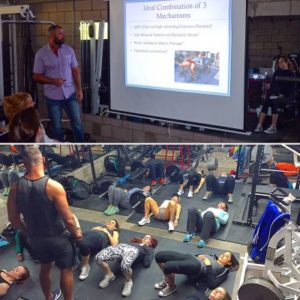
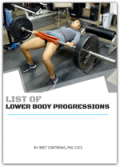
Yes! I find that my drive to train AND the joy I experience from training diminishes under too many expectations and too specific a plan. My best training sessions are those where I just let myself have at it and have FUN and let off some steam in whatever way I feel most inclined. However, it is also important to note that these freestyle sessions are highly influenced from the knowledge I’ve gained studying the advice and programs of experts I respect and admire — like Bret!
Hi, Sami! Now this is a great comment. It’s the Yin and yang of training.
In jazz, it’s a fine line between a free flowing “jam”, and a train wreck of noise. You work just outside the parameters of the musical structure, which remains as an anchor point.
In basketball, the absolute best players are those steeped in disciplined fundamentals. They take those skills, and imprint their own instinctive gifts. The same, but different. (Kyrie Irving, Steph Curry come to mind from the modern day. Magic and Bird from the past.)
Strength training. Look at the hip thrust. What a fantastic, useful move. And yet, BC almost got run out of town for thinking too far outside the box!
What about the Kroc row? If you weren’t an absolute beast like Kroc, and you trotted that one out at a seminar or something, you would have been surrounded by an angry, form police mob.
And yet again, in fairness to all sides, the Kroc row works best when you know how to do a strict dumbbell row, with a disciplined sequence of muscle activation. Knowing how to target the prime movers, and then moving that pattern into the middle of another larger pattern. Yin and yang.
I go back to the way the old school guys trained sans internet. They put in their time, trying stuff, and went with it if it worked.
Thank you for the great insights, Sami!
Yin and yang – that’s a wonderful way to look at it! Thanks for your reply, Derrick!
Love it!!! I think it is true we can time to time forget the joy in training and overtime it feels like a job. I think it’s a great idea every now and then to ditch the training log for a week or two and do something enjoyable.
Thanks Eric, glad you liked! Agreed. You know, one way I keep it fresh is to approach it with “tradeouts”.
So many lifts have analogues in other lifts, and this is not always easy to see. For example, heavy dips can swap out for OHPR, as both will crush the lateral delts, esp. if performed with a slight internal rotation.
SLDLs for higher reps can swap out for rows, as the action from the humerus to the torso is identical. This is analogous to an SLDL at the hamstring being equivalent to a back extension. Different force-curve relationship, but extremely effective all the same.
So if my nervous system is craving an SLDL, and I had rows on the plate that day, who am I to argue with the boss? Ha ha…
Thanks for chiming in!
Great article. I think I also have that need to train. For no reason either, no goals besides just feeling better, getting stronger. No more sports in my life. I am a washed up runner with all sorts of chronic injuries, I have found a happy medium of competitive athletics with resistance training. Pushing my body, getting stronger and faster, applying all I’ve been learning….fulfills a physiological need. Are you familiar with Dave Raichlen’s studies regarding exercise and the neurobiological reward it provides humans, and how he believes it to be the driving force of evolution. I love when I can find peer-reviewed journals to show my girlfriend to validate my obsession with the gym.
Hey Brian, fellow washed up runner! Running is super easy to overdo, and this article in an earlier iteration got into some boring running overtraining stories, ha ha!
No I haven’t heard of those studies, but will certainly look into it. Sounds perfectly plausible.
And I feel you on the training. If I don’t do it, I just don’t feel right, and get super irritable. Maybe present it that way to your girlfriend, and she will happily sign off 🙂
Great Article!
Thank you, Kelly!
I really like the tone of this article. Always forcing yourself to do something you don’t want to do seems like a waste of time to me. I think the framework of doing something because you enjoy it works much better.
For sure, Zak. This gets into that motivation area. It’s taking honest stock of your likes, dislikes, innate talents, and goals, and going from there.
If the external motivation is high enough, then it is worth plowing through. But when internal motivation and external motivation overlap, esp. with a degree of natural talent? Now you are looking at a monster.
I loved your article and I completely relate to what you are saying derrick,over time I became a bit “addicted” to training, I train because it balances me, it is part of me and if I get injured in some way I just adapt my program in order to keep on training, it is a way of life.
The dopamine system is central to pleasure/reward…and movement. Put those two together, and you can remove those quotation marks around addiction, Catarina.
There are worse things to be hooked on, and as you have discovered, when “hung over” i.e. injured, you just switch your addiction to another activity which will provide that exercise rush.
(He says as he ices his strained (again!) adductor, and ponders whether iso moves for legs will preserve his strength as it heals, lol!)
I loved that article as I agree completely with the message. I have trained for over 20 years, and while many of my training partners and friends have had much better genetics than me, as far as bone structure, muscle insertions, metabolism etc concerns, 20 years later, I’m still in the gym as often as life permits – most of my earlier training partners are not. It’s never a chore and I’m still excited about new programs, diets and ideas. All you need is love 🙂
That’s what I’m talking about, Jacob! (internet fist bump)
Hey, really enjoyed this post. Going with the flow is the way to go!
Glad you liked, Shane! It has taken me a long time to figure this out, and just run with it.
I like that word “flow”. There’s that moment somewhere after the warmup, and somewhere before the session really gets going, where you just know…it is ON now!
I’ve heard it phrased, “the bar is warm”, which just nails it to me.
i am currently deciding whether to do 5x a week bodyweight autoregulated training – no numbers etc, just basic structure, 3 sets…or to stay on the road of efficiency -HIT 2x a week with charts etc. which brought me some results. I like total exertion training to failure with no rest between represents, and that it’s autopilot and I can easily see if I improve or not. At the same time I’m intriqued by “treat your body as a garden rather than as a machine” approach of frequent training. I am afraid it will massively increase time investment for essentially the same results though. These days I am more process oriented, but “does it work?” (Aesthetically) Is still the most important question. And I am still in my 1st year of serious progressive training.
Hi Ondrej, lots of stuff going on here.
“Does it work” and “results” refer to an intended outcome. You mentioned a few different variables: Aesthetics. Rep count on bodyweight exercises. Total exertion to failure training.
Straight away we see that you have an inclination towards some specific types of training, and as you try a few different approaches, you will start deciding what “works” for your goals while overlapping with your enthusiasm for the work to be done.
First year? I would suggest that learning solid movement patterns is more important than programming at this point. Pretty much any program, performed correctly with honest effort will provide “results”, er, adaptations, in the early going.
Bulletproof your form on the 6-7 different movement patterns. Experiment with 2-3 variations of each, get really good at at least one. (ex. push up, dumbbell press, bench press. BW Squat, Goblet SQuat, Front Squat. TRX Row, dumbbell row, barbell row, etc.)
As soon as you master the form on one version, the training ball is rolling, and you can branch into the others as you move along.
As you go along, the training style you like will (hopefully) start to sync up with the primary adaptation that you would like to effect. If not, then one or the other will necessarily start to give.
But it’s kind of like sports, you don’t know until you try a few different ways, and something “clicks”.
Good luck!
Thanks. My goal is hypertrophy, but I also don’t want complicated models like “do 20 RM at the RPE of 6”. Either I train HIT style to failure or totally autoregulated training by feel to an RPE of 8-9. Both are essentially training on autopilot…
Very interesting article. You’ve left me questioning whether I actually have the need to train. At the moment I’m still in the sporting phase of my life and highly motivated because of it. I’m not sure whether I’ll be able to answer that question until that external motivation drops away. Thanks for the food for thought
No, thank you, Gem. Quid pro quo. You’ve got me thinking, too. Run with what’s happening right now. Enjoy it.
Thank you to everyone for chiming in, as I want to keep learning, and absorbing different perspectives.
“The activity is the reward.” <—- I like this
New strength and new muscle are obviously great, but they don't compare to your actual training experiences and memories. Whether you train alone or with partners, the time you spend making yourself better while enjoying the process is very interesting. You learn a lot about yourself physically and emotionally and although you may do the same types of things day in and day out (for me, it's the powerlifts), every session is unique. Throughout the process, you are certainly rewarded with favorable aesthetic improvements, but the real reward is our human ability to train hard and recover. Without those abilities, we'd never get to experience what it feels like to apply stress and adapt positively from it, consistently.
This is so brilliant that I am just going to shut up and read it over and over. I’m actually a bit humbled by this one, and this is a good thing.
Thank you, Steven.
Great article.
I LOVE training, be it with weights or Muay Thai or circuit training. I have goals, but they generally take a back seat to the enjoyment of just working my ass off.
Ah yes, the enjoyment of just working your ass off. It’s real! Thanks, Stew!
Hey Derrick,
Really loved the perspective you bring to training, because I am definitely NOT hard-wired to train 🙂 I do enjoy it though, and now (after 2 years of mostly consistent training), I find I really do get a bit irritable when I miss a workout. Still, even though my motivation is definitely externally-oriented, and my program is structured (i.e., do 3 sets of 1-5 reps, then do 2 sets of 10 reps – rinse, repeat), every month or so I find myself craving a good solid “fly-by-the-seat-of-my-pants” workout. It’s an awesome way to recharge, and satisfy whatever minor genetic drive to train that I have!
Thanks for the fresh take – I’ll definitely keep this philosophy in mind next time I just feel the need to push it…purely for the sake of pushing it!
Nice, Craig! And don’t be surprised if in the process of pushing it, if a few days later, you have a craving to “push it’ again.. And again.. And look out, something is different now.
(And then watch out for those pesky adaptations!)
Thank you for this article. I have been working out for 20+ years and have a love hate relationship with the gym. My husband is a former body builder who can go in the gym and do the same old boring routines over and over but I get bored and when i get bored I quit going which has happened several times in the past few years.
After I learned about glute training from Bret’s books and these newsletters I have a new found love for working out, but NOT for going to the gym! I can tolerate the gym now as long as I can do the workout “I” want to do and not work out with him. He still does his old tried and true but I am mixing it up and actually enjoying the process. I killed it last night and I can sure feel the benefit of it this morning! I love working my glutes and the looks and head nods I get in the gym make it even better. I am not as strong as “the girls” (Erin and Sammi) yet but I am determined to be able to lift like them and I am old enough to be their mom so for that I am loving my training.
Great perspective, Becky. I think you are really getting to the heart of what I was trying to express with the article. Boredom is your CNS asking for permission to “play”. And there are so many styles of training, that it just never gets old!
On the age thing, I saw Mark Felix win the DL portion of the World’s Strongest Man at the ripe old age of 47, which makes me feel great about continuing to train hard as the birthdays pile up. The human body is truly remarkable in its ability to keep adapting, and I am fascinated with how the mind plays in to this!
Plus it is so much easier to keep the ball rolling, then start it from a dead stop, you know? Use it or lose it!
I am loving all the perspectives, everybody!
I’m thankful for your article; I saw the title and knew I’d love it. Absolutely – it is so great to read about someone else who simply loves to train. 🙂